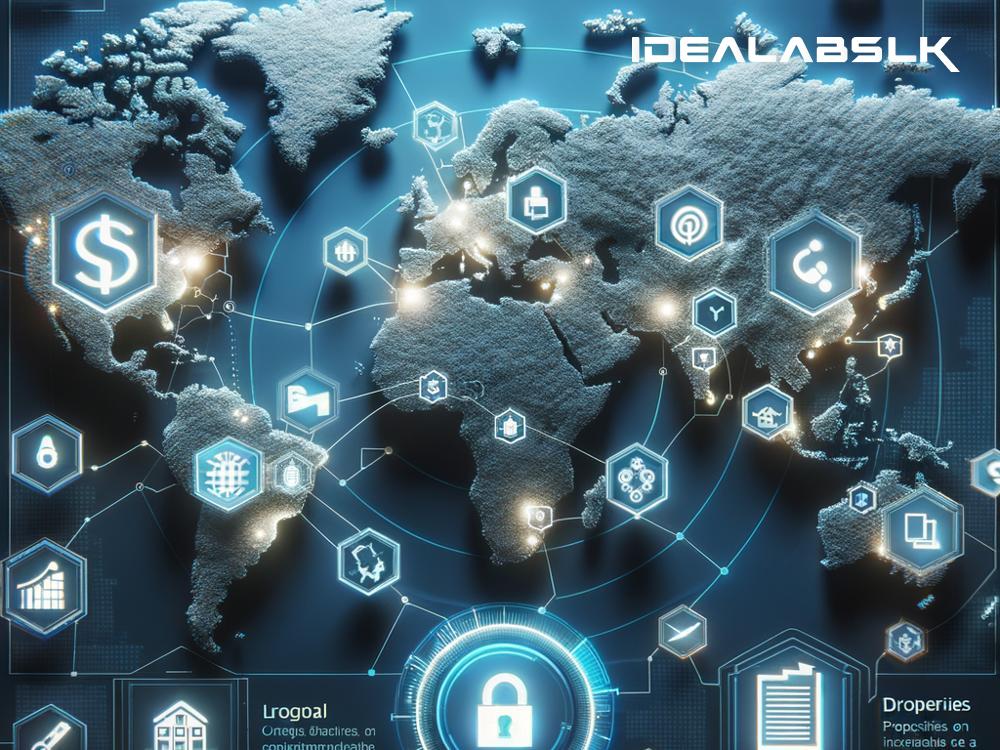Blockchain for Real Estate: Revolutionizing Cross-Border Property Transactions
In the quickly evolving world of technology, real estate transactions, surprisingly traditional and sometimes painstakingly slow, are getting a futuristic facelift, thanks to blockchain. This innovation is not just transforming the way we consider borders in property trading; it's revolutionizing the entire purchasing process, making "seamless" not just a buzzword but a real, tangible experience for buyers and sellers worldwide.
Understanding Blockchain: A Quick Overview
Before diving into its real estate applications, let's simplify blockchain. Imagine a digital ledger that is shared among a network of computers. This ledger meticulously records every transaction made, similar to how a notebook might track expenses, but far more advanced. Each transaction or "block" is secured and bound to the next, creating a chain of immutable records. Because it's decentralized, no single entity has control, boosting transparency and trust.
The Game Changer for Global Real Estate Transactions
When you think about buying property, especially in a different country, the headache of dealing with legal requirements, banks, and endless paperwork pops up. Blockchain technology promises to simplify these complexities, offering a smoother path for cross-border property transactions. Here's how:
1. Enhanced Security and Transparency
Blockchain's secure, unalterable record system means every detail of a real estate transaction can be accurately tracked and verified, reducing the risk of fraud. This transparency is especially appealing in international transactions where trust levels can be low due to unfamiliarity with local systems and regulations.
2. Simplified Processes
Buying property typically involves various intermediaries: real estate agents, lawyers, banks, and more. Blockchain can streamline this by allowing all parties to access and verify necessary documents in a secure environment, without as much need for middlemen. This not only speeds up transactions but can significantly reduce costs.
3. Tokenization of Assets
One of blockchain's most innovative applications in real estate is the concept of tokenization. This means dividing the property into digital shares, or "tokens," that can be easily and securely bought and sold on the blockchain. For international buyers, this can lower the entry barriers to investment in foreign real estate markets, making even expensive properties accessible.
4. Smart Contracts
Smart contracts, self-executing contracts with the terms of the agreement directly written into code, eliminate the need for intermediaries further. These contracts automatically enforce and execute the terms of agreements, ensuring that all conditions are met before a transaction proceeds. In cross-border deals, where legal discrepancies can be a major hurdle, smart contracts offer a common ground that's both efficient and reliable.
Real-World Impact and Future Prospects
While blockchain in real estate sounds like a futuristic concept, it's already making waves. Several countries and companies are piloting blockchain projects for property transactions, with promising results. For instance, transactions that used to take months are being completed in days, with drastically reduced costs and increased satisfaction for both buyers and sellers.
The potential for blockchain to open up international real estate markets is immense. As technology continues to evolve and its adoption becomes more widespread, we can expect to see further simplification of cross-border transactions. This could democratize access to real estate investment, offering opportunities that were previously out of reach for many due to bureaucratic and financial barriers.
In Conclusion
Blockchain stands to redefine global real estate transactions, making them more secure, efficient, and accessible. While the journey is still in the early stages, the changes it promises are not just evolutionary but revolutionary. As we watch this space evolve, one thing is clear: the future of real estate transactions, powered by blockchain, looks brighter than ever.
For potential investors or anyone interested in international real estate, the message is to stay informed and be prepared. Blockchain is not just a trend but a transformative force, reshaping borders in the real estate world and beyond.

